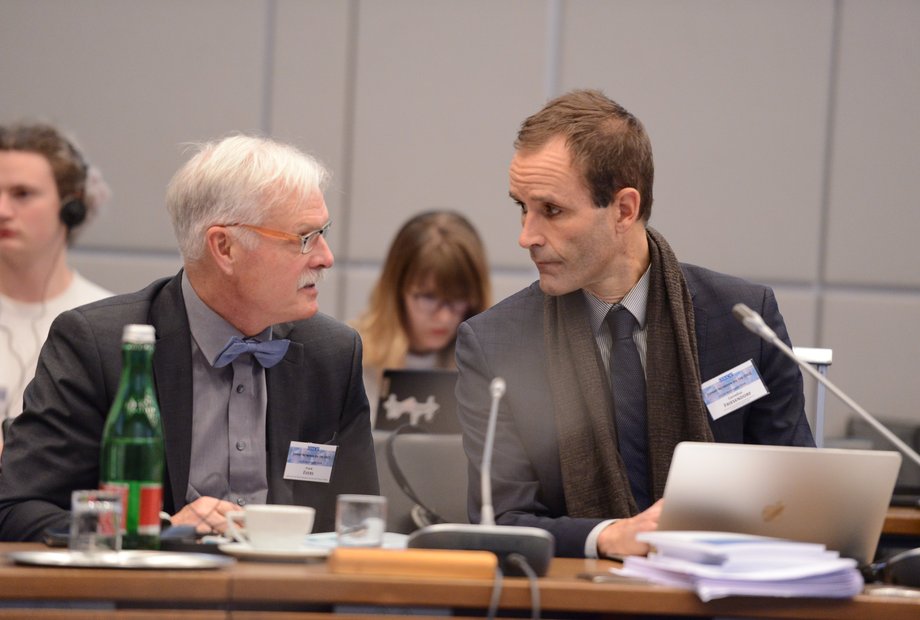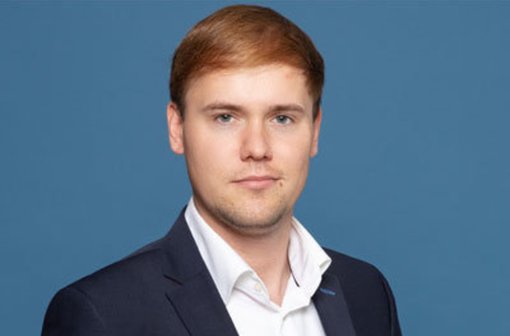What milestones has the Organization for Security and Co-operation in Europe (OSCE) achieved over the decades? What do the governments of its 57 participating States expect of the Organization today? And can the OSCE continue to play a meaningful role in European security and conflict management in the future? These were among the pressing questions discussed during the second Annual Meeting of the Expert Network on the OSCE, held at the Organization’s Vienna headquarters on 11–12 November. The event took place in the run-up to the 50th anniversary of the OSCE in 2025 and brought together researchers, representatives of the current OSCE Troika (North Macedonia, Malta and Finland), representatives of other national delegations and the OSCE Secretariat. Former Finnish Foreign Minister and Member of Parliament Pekka Haavisto delivered the opening address.
Representing the IFSH’s Centre for OSCE Research (CORE) were Dr. Cornelius Friesendorf and Dr. Frank Evers. Evers contributed to a panel discussion on the challenges facing the OSCE, highlighting the emergence of several non-Western multilateral organizations active in the OSCE area over the past two decades. These include the Shanghai Cooperation Organization (SCO), the Conference on Interaction and Confidence-Building Measures in Asia (CICA), the Organization of Turkic States (OTS) and BRICS+.
The Expert Network was launched in Skopje in November 2023, spearheaded by North Macedonia's 2023 OSCE Chairpersonship and former OSCE Secretary General Helga Schmid. The initiative brings together researchers and think tank representatives from various OSCE participating States and aims to foster research and dialogue on OSCE-related issues.
Further information can be found here.





